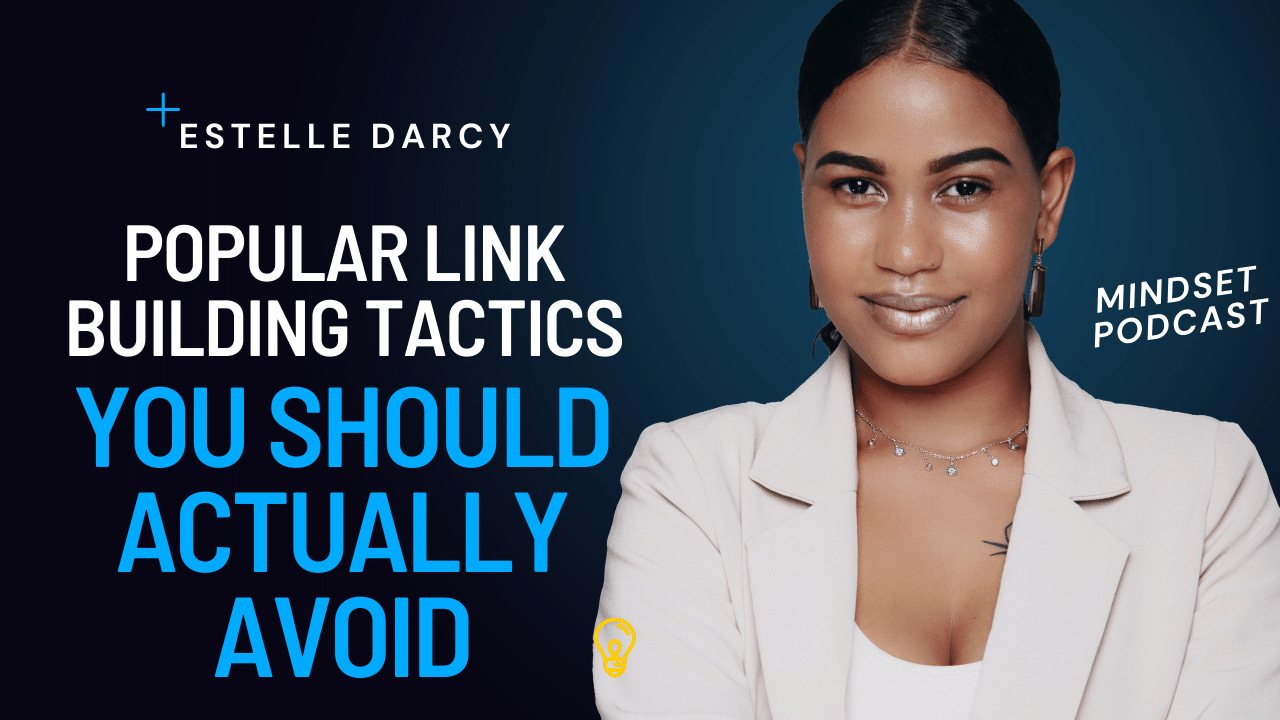SEO
18 Popular Link Building Tactics You Should Actually Avoid
- Introduction
- Understanding the Importance of Link Building
- Link Building Tactics to Avoid
- 3.1 Buying Links
- 3.2 Excessive Guest Posting
- 3.3 Low-Quality Directories
- 3.4 Reciprocal Linking
- 3.5 Link Farms and PBNs
- 3.6 Irrelevant Link Building
- 3.7 Automated Link Building
- 3.8 Link Exchanges
- 3.9 Hidden or Paid Links
- 3.10 Comment Spamming
- 3.11 Article Spinning and Duplicate Content
- 3.12 Link Schemes
- 3.13 Private Blog Networks
- 3.14 Irrelevant Blog Comments
- 3.15 Link Wheels
- 3.16 Linking to Penalized Websites
- 3.17 Social Bookmarking Spam
- 3.18 Linking to Non-Indexable Sites
- The Negative Impact of Unethical Link Building
- Building High-Quality and Relevant Links
- Conclusion
- FAQs
18 Popular Link Building Tactics You Should Actually Avoid
Link building is an essential aspect of search engine optimization (SEO) that can significantly impact your website’s visibility and organic rankings. While there are numerous effective link building strategies, it is equally important to be aware of the practices you should avoid. This article aims to highlight 18 popular link building tactics that you should steer clear of in order to safeguard your website’s online presence and reputation.
Introduction
In today’s digital landscape, link building plays a pivotal role in improving a website’s authority and enhancing its search engine rankings. However, not all link building techniques are created equal. Some tactics that were once deemed effective are now considered detrimental to a website’s SEO efforts. It is crucial for webmasters and SEO professionals to stay up-to-date with the latest best practices to avoid falling into the trap of employing harmful link building tactics.
Understanding the Importance of Link Building
Before delving into the link building tactics you should avoid, let’s briefly explore the importance of link building. Search engines like Google consider backlinks as “votes” of confidence from other websites. When reputable websites link to your content, it signals to search engines that your website is trustworthy, authoritative, and provides valuable information to users. Consequently, search engines are more likely to rank your website higher in search results, leading to increased organic traffic.
Link Building Tactics to Avoid
3.1 Buying Links
Buying links may seem like a shortcut to gaining numerous backlinks quickly, but it is a practice strongly discouraged by search engines. Purchasing links goes against Google’s Webmaster Guidelines and can result in severe penalties, including a significant drop in rankings or even a complete removal from search engine results.
3.2 Excessive Guest Posting
Guest posting, when done right, can be an effective way to build relationships, gain exposure, and earn backlinks. However, excessive guest posting solely for the purpose of link building is considered spammy and can harm your website’s credibility. Focus on providing valuable content and contributing to relevant and authoritative websites instead.
3.3 Low-Quality Directories
Submitting your website to low-quality directories that exist solely for the purpose of link building is an outdated practice. Such directories often have low domain authority, and their links carry little to no value. Instead, prioritize reputable and niche-specific directories that offer genuine value to users.
3.4 Reciprocal Linking
Reciprocal linking, where two websites agree to link to each other, was once a common practice. However, excessive reciprocal linking solely for the purpose of manipulating search engine rankings is considered a black hat SEO technique. Instead, focus on earning one-way, natural links from authoritative sources.
3.5 Link Farms and PBNs
Link farms and private blog networks (PBNs) are networks of websites created for the sole purpose of artificially inflating backlinks. Search engines have become increasingly sophisticated at detecting such networks, and engaging in this practice can lead to severe penalties. It is best to build links naturally and organically.
3.6 Irrelevant Link Building
Linking to irrelevant websites or acquiring backlinks from unrelated sources can harm your website’s credibility and relevancy. Ensure that the websites you link to and receive links from are contextually relevant to your content and industry.
3.7 Automated Link Building
Automated link building tools and software promise quick and effortless backlinks. However, these tools often generate low-quality and spammy links that can harm your website’s reputation. Manual link building is a more effective and sustainable approach for long-term success.
3.8 Link Exchanges
Similar to reciprocal linking, link exchanges involve trading links with other websites. While some genuine link exchanges can be beneficial, excessive and manipulative link exchanges solely for SEO purposes are not recommended. Focus on earning natural links through high-quality content and outreach efforts.
3.9 Hidden or Paid Links
Hiding links within your website’s code or using paid links that pass PageRank is a violation of Google’s guidelines. Such tactics are considered deceptive and can result in severe penalties. Ensure all your links are visible, relevant, and obtained through ethical means.
3.10 Comment Spamming
Leaving irrelevant and promotional comments on blogs solely for the purpose of gaining backlinks is a spammy tactic. Not only does it provide little value to readers, but it can also lead to your comments being deleted or marked as spam. Engage in meaningful conversations and contribute valuable insights instead.
3.11 Article Spinning and Duplicate Content
Creating spun or duplicate content to distribute across multiple websites with the intention of generating backlinks is an outdated and ineffective strategy. Search engines value unique and original content. Focus on producing high-quality, original content that naturally attracts backlinks.
3.12 Link Schemes
Participating in link schemes that aim to manipulate search engine rankings is against Google’s guidelines. This includes tactics such as link buying, link swapping, and participating in link networks. Instead, invest your time and effort into building genuine relationships and creating valuable content.
3.13 Private Blog Networks
Private blog networks (PBNs) involve a network of interlinked blogs created solely for link building purposes. Engaging in PBNs can lead to severe penalties, including being deindexed by search engines. Instead, focus on building a strong, authoritative website with natural and organic links.
3.14 Irrelevant Blog Comments
Leaving comments on blogs that are irrelevant to your niche or industry solely for the purpose of gaining backlinks is ineffective and can harm your website’s reputation. Instead, contribute meaningful and relevant insights that add value to the discussion.
3.15 Link Wheels
Link wheels involve creating a network of websites that link to each other in a circular pattern. This tactic is an attempt to manipulate search engine rankings and is strongly discouraged. Focus on building natural, diverse, and high-quality backlinks instead.
3.16 Linking to Penalized Websites
Linking to websites that have been penalized or have a history of engaging in unethical SEO practices can negatively impact your website’s reputation. Conduct thorough research on the websites you intend to link to and ensure they are reputable and trustworthy.
3.17 Social Bookmarking Spam
Social bookmarking platforms can be useful for sharing valuable content and driving traffic. However, excessive and spammy social bookmarking solely for the purpose of link building is not recommended. Focus on providing valuable content that naturally attracts social shares and bookmarks.
3.18 Linking to Non-Indexable Sites
Linking to websites that are not indexed by search engines serves little purpose in terms of SEO. Ensure that the websites you link to are accessible and indexable to maximize the potential benefits of your backlinks.
The Negative Impact of Unethical Link Building
Engaging in unethical link building tactics can have severe consequences for your website’s SEO efforts. Search engines, particularly Google, are constantly evolving their algorithms to detect and penalize manipulative practices. The penalties can range from a significant drop in search rankings to being completely removed from search engine results. Additionally, your website’s reputation and trustworthiness may suffer, leading to a loss of credibility among users.
Building High-Quality and Relevant Links
To build high-quality and relevant links, focus on creating valuable content that naturally attracts backlinks. Produce informative articles, guides, and resources that others find useful and are inclined to share. Engage in outreach efforts to connect with influencers and authoritative websites in your industry. Guest posting on relevant and reputable websites can also help you earn valuable backlinks while establishing your expertise.
Conclusion
In the ever-changing world of SEO, it is crucial to stay updated with the best practices and avoid engaging in link building tactics that can harm your website’s visibility and reputation. By steering clear of the 18 popular link building tactics mentioned in this article, you can focus on ethical and effective strategies that will help improve your website’s authority, rankings, and overall online presence.
FAQs
Q1: Is link building still important for SEO? Absolutely! Link building remains an essential aspect of SEO. Backlinks are still one of the most important ranking factors considered by search engines. However, it’s crucial to focus on quality over quantity and employ ethical link building strategies.
Q2: Can I buy links to improve my website’s rankings? Buying links is strongly discouraged. Search engines, especially Google, consider it a violation of their guidelines. Buying links can result in severe penalties, including a drop in rankings or even removal from search results.
Q3: What is the best way to build high-quality links? Building high-quality links requires a combination of producing valuable content, engaging in outreach efforts, guest posting on relevant websites, and fostering relationships with authoritative sources in your industry.
Q4: How long does it take to see the impact of link building efforts? The impact of link building efforts can vary depending on various factors, such as the authority of the linking websites, the relevance of the links, and the competitiveness of the industry. Generally, it takes time to see significant results, so patience and consistency are key.
Q5: Are all link building tactics considered black hat SEO? Not all link building tactics are considered black hat SEO. There are ethical and effective strategies to build links, such as creating valuable content, earning natural backlinks, and engaging in outreach efforts. It’s important to focus on quality and relevance rather than resorting to manipulative tactics.

